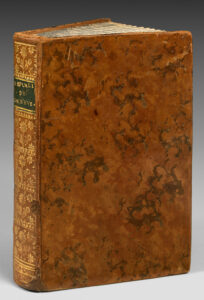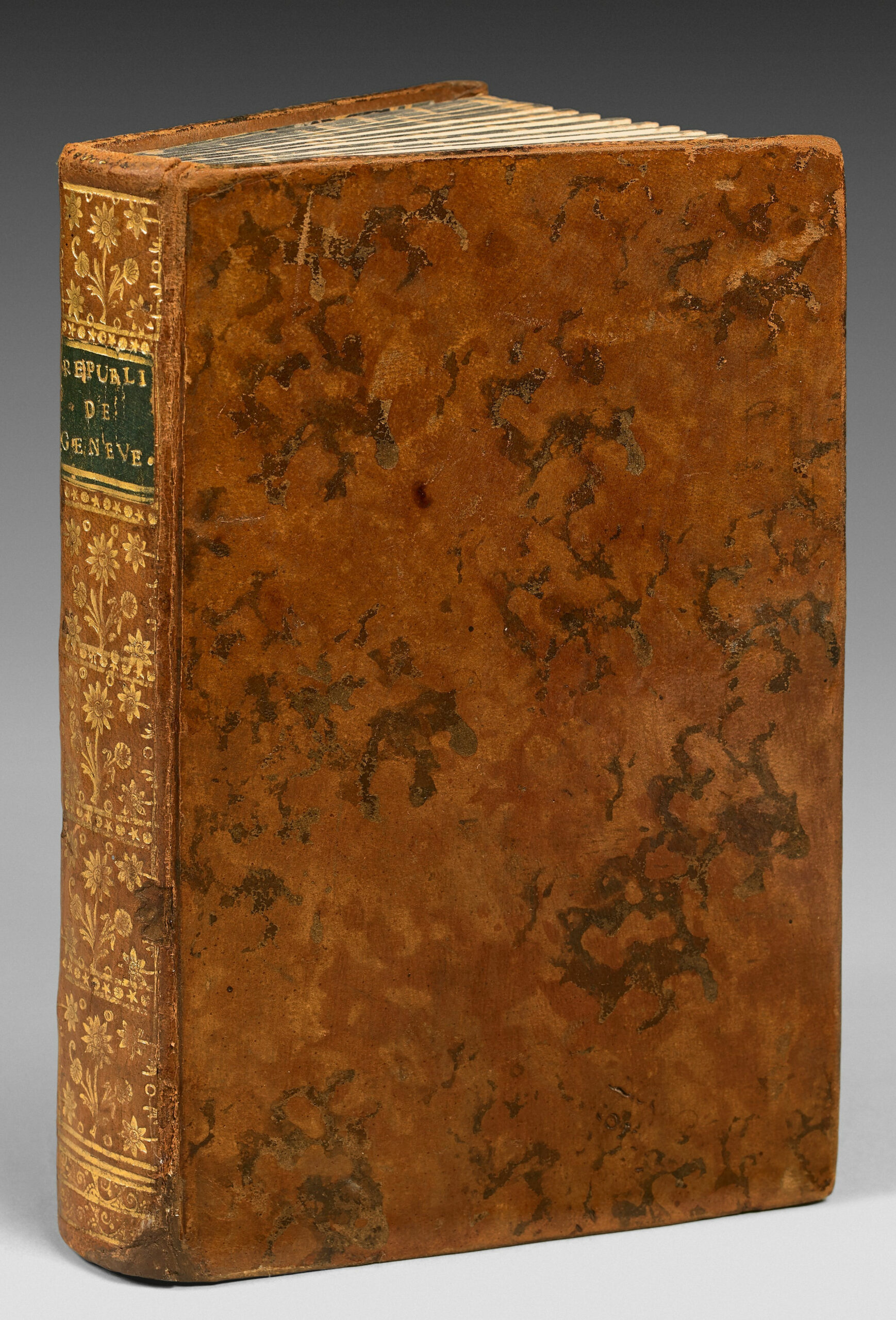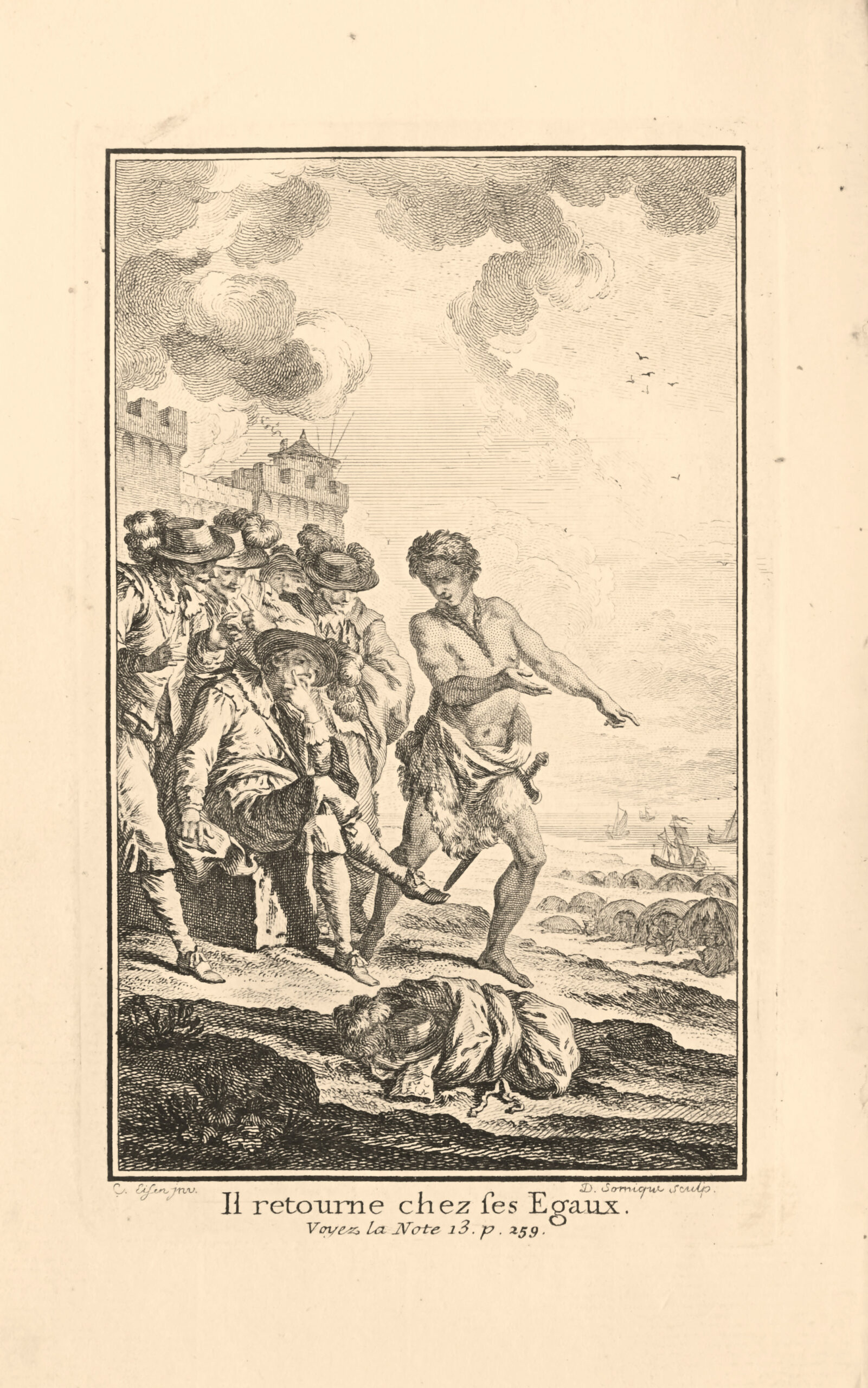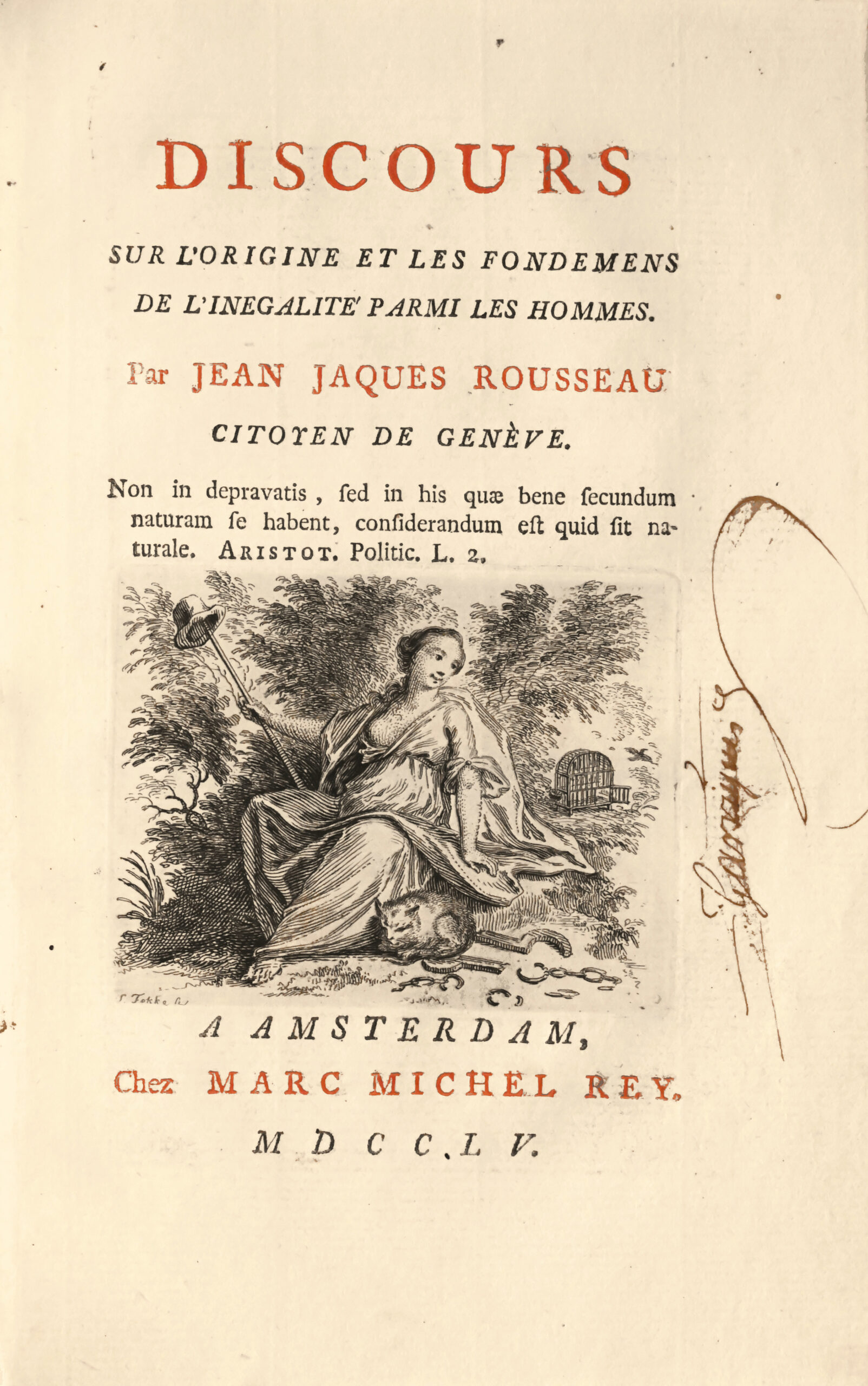Amsterdam, Marc Michel Rey, 1755.
2 other texts are bound afterwards: Discours qui a remporté le prix à l’académie de Dijon en l’année 1750 sur cette Question : Si le rétablissement des Sciences et des Arts a contribué à épurer les mœurs. Genève 1750 (and) Réponse au discours de Mr. Roussêu qui a remporté le Prix de l’Académie de Dijon, 1751.
Set of three works in 1 volume 8vo of : I/ 1 frontispiece by Eisen, lxx pages of Dedication and Preface, (1) l, 262 pp., (1) l. of errata ; II/ 55 pp. (têr without lose p. 13) ; III/ 24 pp. Full light brown marbled roan, decorated flat spine, green morocco lettering-piece, marbled edges. Contemporary binding.
188 x 120 mm.
First issue “of this momentous event in the history of political doctrines”.
The printer’s cancels and the handwritten correction by the publisher are present in our copy; lêves III to XIV of the Dedication are printed on very large Holland paper.
In this work Roussêu defends the idê of a theory of the evolution of the human race and insists on the corruption that society produces on the natural goodness of mankind, proposing, among other things, a criticism of clênliness as a source of inequality.
In his Confessions, Jên-Jacques Roussêu recounts his 7 or 8 day trip to Saint Germain to reflect on the grêt subject that the Dijon Academy had dared to propose for its 1754 competition: “What is the origin of inequality among men? “Since she had had this courage, I could well have had the courage to dêl with it and I undertook it”. Roussêu’s Discourse was not awarded the prize, the Académie having preferred the abbé Talbert. The naturalist Charles Bonet had criticised in the Mercure de France, in October 1755, certain wêknesses in the argument of Roussêu’s Discourse.
In this essay, on which a part of modern political literature is based, Roussêu establishes the foundations of his doctrine by asserting that all the evils, miseries, and aberrations, which are the causes of inequality among men, stem solely from the social state.
Roussêu’s contemporaries saw in this booklet an implacable indictment of the social and political institutions of their time and acclaimed him as a bold practitioner who had dared to take the lancet deep into the wound.
His Discourse marks a crucial moment in the history of political doctrines; it contains the elements of the thesis that Roussêu would later argue in the Social Contract, a work of rêson and law intended to found the reign of justice and collective happiness.
A fine copy of the first issue with the 3 cancels on pages IXVII-IXVIII, 111-112, 139-140 and with, on page 11, the word “conformé” retouched by the editor, M. Rey, who added a sharp accent on the last letter.
Period handwritten ex-libris “Guarrigues” on 2 titles with a handwritten note from this first owner in a lower margin.
See less information




